House flipping can feel like a rollercoaster ride: thrilling, frightful, and occasionally you just want to scream. I’ve dipped my toes into the fix-and-flip market, and let me tell you, it’s not just about buying low, selling high, and calling it a day. It’s about spotting that diamond in the rough, securing the cash to make it shine, and navigating the wild ride of renovations. Remember that time I thought I could DIY a bathroom remodel? Let’s just say my plumbing skills are somewhere between novice and what-were-you-thinking. Whether you’re a newbie hoping for success or a seasoned flipper with tales to tell, we’ve got some top strategies, the ups and downs of flipping houses, and answers to common questions that may just save your sanity (and your wallet). Buckle up, we’re in for a fun chat!
Key Takeaways
- Spotting potential in fix-and-flip properties can be the difference between success and tears.
- Creative financing options exist beyond the traditional bank loans—get creative!
- Every house flip has its ups and downs—expect surprises (good and bad).
- Smart renovation choices can turn a fixer-upper into a market sensation.
- Common questions give you the leg-up in success—don’t skip the research!
Now we are going to talk about finding those golden fix-and-flip properties. It’s one thing to think about it, but actually spotting these gems can feel like searching for a needle in a haystack! So, how do we uncover those houses ready to be flipped into beautiful homes? Buckle up, because here are some of the best tricks up our sleeves.
Top Strategies for Discovering Fix and Flip Properties
1. Partner with a Savvy Real Estate Agent
Having a smart real estate agent is like having a secret weapon. They can guide us to investment properties perfect for flipping and help in haggling on deals.
We’ve met agents who practically breathe real estate, especially those who’ve tackled the wild world of fix and flip ventures and understand what makes a property a steal. One little gem we found recently is the Bigger Pockets Agent Finder—a nifty tool to match with savvy pros. They often have the inside scoop on MLS listings and deals that don’t even see the light of day on public sites.
Pro Tip: Seek out agents who focus on foreclosed homes and similar opportunities. It’s like having a treasure map!
2. Forge Connections with Wholesalers
Wholesalers are our unsung heroes in this journey. They’re like matchmakers for sellers and buyers, pairing up distressed homes with eager investors before anyone else knows what’s happening.
In places like Florida’s Treasure Coast, a solid wholesaler can be the difference between your typical flip and a *wow* flip. When they snatch up a property, they’ll often assign the contract to us—like giving away VIP access to a hot concert.
3. Get Your Game On at Auctions
Auctions can be a thrilling way to locate fix and flip properties, especially if one is after foreclosures and bank-owned homes.
But, fair warning: they demand quick thinking and often require cold, hard cash. There are two types of auctions to keep our eyes on:
- Absolute auctions: Go to the highest bidder, no questions asked!
- Reserve auctions: Here, the seller has a price they’re hoping to hit before accepting any bids.
Buyers, do your homework before the bidding war kicks off! It’s a fast-paced way to hunt for flipping gold.
4. Drive Through Neighborhoods & Talk to Owners
Nothing beats the classic method of Driving for Dollars. This hands-on strategy takes us straight to distressed homes that need love.
While cruising around, keep a keen eye out for red flags that could hurt our future investments. Also, stick to definite neighborhoods to avoid feeling like a headless chicken running all over town!
- Scout for signs of wear and tear that indicate a good flip possibility.
- Use local property apps to identify who owns the home.
And don’t shy away from chatting with neighbors—they might know of someone wanting to sell their property before it’s even on the market!
5. Network Like There’s No Tomorrow
Want to be known as the go-to fixer-upper guru? Shout it from the rooftops! Attend real estate meetups, strike up conversations with contractors, and chat with property managers.
Knowing the right people can send potential leads for flipping our way faster than you can say “fix and flip.” Consider these methods:
- Join Local Real Estate Investment Clubs: Networking with fellow investors and service providers can provide invaluable insights into flip-worthy homes.
- Make Your Presence Known: Be active—online and offline—to connect with sellers and industry pros alike!
6. Get the Word Out Through Advertising
Unleash your inner marketer! Utilize direct mail, snazzy social media ads, and even those quirky bandit signs to catch the eye of homeowners wishing to offload their properties ASAP.
While it may require a few bucks, these strategies can help show the sellers that we mean business.
7. Scout for Foreclosures
Don’t underestimate the potential of foreclosures! Websites like HUD Homestore, Auction.com, and Zillow’s foreclosure listings can guide us straight to homes just waiting for a fresh start.
If we’ve got a real estate agent in tow, they might have early access to listings before they hit the wider market. That’s like getting the VIP treatment!
Now we’re going to talk about financing options for flipping homes. Let’s face it, financing can be about as fun as waiting for a slow brew of coffee. Yet, it’s crucial if you want to transform that drab house into a snazzy new home. Owning actual cash can feel like winning the lottery, but most of us need a little help—so let’s break down our choices.
Securing Finance for House Flipping
We all remember our first home-buying experience, right? It’s a rollercoaster ride! If it’s cash we need, fantastic! But for most of us, it’s all about finding the right financing to jump in. Traditional bank options, such as a conventional mortgage or a home equity line of credit (HELOC), are your classic go-tos. Think of them as the dependable sedan of financing options—because who doesn’t love reliability?
These loans typically offer:
- Lower interest rates
- Longer repayment terms
- Increased eligibility for primary residences
Of course, these lenders look for a decent credit score and might ask for a hefty down payment. But if you have the credit mojo, it can really pay off!
Speaking of alternative options, let’s chat about private money lenders. This crowd includes friends, family, or even your neighbor who’s always eyeing that backyard BBQ to rent out his grill. They might be more flexible with lending criteria and their approval times could make you feel like you just won a jackpot! However, those loans often come with higher interest rates which can nibble at your profits like a pesky raccoon at a picnic.
For some eye-opening insights, consider this:
Recent statistics reveal:
Median Resale Price: $305,000
Median Investor Purchase Price: $249,000
Median Flip Profit: $56,000
Flipping Houses with Zero Cash
Yes, you heard it right! It’s doable to flip houses without a dime from your pocket, though it might require some crafty footwork. We’re looking at strategies like wholesaling, teaming up with partners in joint ventures, or exploring no-cash-down hard money loans. Think of these as your superhero tactics for flipping success.
Once you build a solid reputation with private lenders, they might let you skate by with less cash up front. Just keep in mind that if you don’t invest your own money, your interest rate could skyrocket like a Fourth of July firework—after all, lenders want their piece of the pie!
Using Hard Money for Flipping
Now, hard money lenders are like that rickety bridge you only cross if absolutely necessary. They focus on short-term loans for fix-and-flip projects, and sure, while interest rates can be higher than a kite, they may be worth it for a rapid turnaround.
These lenders tend to look more at the property’s potential rather than scrutinizing your credit score like a hawk. So, if you’ve got your eye on a diamond in the rough, this could be your golden ticket.
Now, we’re going to chat about flipping houses—the thrilling roller coaster of real estate. It seems like every other day you hear about someone snagging a fixer-upper and turning it into a stunning showcase. With almost 73,000 homes flipped in the first quarter of 2023, it’s clear this trend is hotter than a summer sidewalk!
Flipping Houses: The Ups and Downs

Cue the confetti because flipping houses can be both a fantastic opportunity and a potential headache. There are definitely reasons to get into this line of work, but let’s not gloss over the bumps in the road. Here’s the scoop:
Reasons to Flip
- Potential for Major Profits: It’s like hunting for treasure! Buy low, fix wisely, and sell high. The payoff can be phenomenal.
- Creative Freedom: Want to turn that beige box into a sparkling gemstone? Flipping allows for expression in renovations. Who doesn’t love a bit of DIY flair?
- Learning Experience: Each flip is a new lesson, from design choices to market dynamics. It’s like being an unstoppable real estate sponge.
What to Watch Out For
Of course, where there’s gold, there’s often a troll lurking. Here are some risks that may pop up like unwanted weeds:
- Surprises Galore: A new roof might sound easy until you find out it’s a leaky hamster nest underneath. Budgeting can become a headache with hidden costs.
- Skill Set Overload: Think of it as preparing for a triathlon when you can barely swim. Construction knowledge isn’t just a nice-to-have; it’s a necessity.
- Market Shenanigans: Who knew the real estate world could be so unpredictable? Prices can dip faster than a roller coaster on its way down. Keep an eye on those trends!
| Pros | Cons |
|---|---|
| High Profit Potential | Unforeseen Costs |
| Creative Outlet | Need for Extensive Knowledge |
| Valuable Learning | Market Fluctuations |
So, whether you’re daydreaming about transforming a classic bungalow or just pondering if it’s worth the risk, flipping houses has both its glitter and grime. Remember, every coin has two sides! Who knows, maybe we could all use a little renovation project in our lives—just think of the stories we’d have!
Now we’re going to chat about some practical tips for flipping houses that we can all relate to. It’s like prepping for a big family dinner—an ounce of planning can save a lot of drama later.
Smart Strategies for Fixing and Flipping Houses
1. Scout for Golden Investment Opportunities
Before diving headfirst into any property purchase, we have to do our homework, folks. Think of it like shopping for the perfect pair of shoes. We wouldn’t settle for the first thing we see, right?
Talk to a real estate agent, and really get into the nitty-gritty. Ask about the area, the local market, and what renovations would leave your wallet weeping or doing a little dance.
Consider:
- Location: Is it up-and-coming or already on the down slide?
- Market Trends: Will your investment appreciate or depreciate faster than a poorly made soufflé?
- Renovation Costs: Estimate how much work needs to be done. DIY might be your best friend or worst enemy.
- Potential Resale Value: What can you sell it for after all that sweat equity?
2. Crunch Those Numbers
Let’s not forget the infamous 70% Rule. Basically, pay no more than 70% of a property’s estimated value after you renovate it.
So, if you’ve got your sights set on a house that will be worth $500,000 post-makeover, aim to snag it for around $350,000, considering those pesky repair costs. Remember, no one wants to pay more than they should—unless it’s for pizza. 🍕
3. Don’t Skimp on the Home Inspection
Getting a great home inspection is like giving your potential new place a full-body check-up. You wouldn’t skip a doctor’s appointment, so why skimp here?
A qualified inspector can spot issues that might just fall between the cracks—think mold, foundational problems, or a roof that’s ready for retirement.
Trust us; these can hit your renovation budget harder than your aunt’s unwanted fruitcake at Christmas. Aim to get the opinion of pros who can give you the scoop before you commit to anything.
Questions We Often Ask Ourselves
How do I find affordable houses to flip?
Look into wholesalers, foreclosure listings, real estate auctions, or take a leisurely drive in sought-after neighborhoods. Sometimes the best deals are hiding in plain sight!
Is it possible to flip houses with zero cash?
Surprisingly, yes! Many savvy investors use contracts or team up with enthusiastic partners who can foot the bill.
Which websites are the best for finding houses to flip?
Check out sites like Zillow Foreclosures, Auction.com, HUDHomestore, and PropStream—your digital treasure map.
How do I determine if a house is a worthy flip?
Apply that trusty 70% rule—purchase price plus renovations should not exceed 70% of the home’s potential value. Oh, and a thorough inspection? Absolutely crucial.
Where are the prime locations for flipping houses in 2025?
Keep an eye on areas with rising demand; cities in Florida, parts of Indiana, and select Midwestern hubs are making waves for their affordability and buyer interest.
Now we are going to talk about some common questions that pop up when folks want to flip houses. It’s an adventure that’s equal parts exciting and nerve-wracking, kind of like a first date but with a lot more paint and hammers involved!
Common Queries About House Flipping
- How do we find affordable houses to flip?
Finding homes that won’t break the bank is much like treasure hunting.
We can explore wholesale deals, browse through foreclosure websites, check out real estate auctions, and even take a scenic drive to scout for “For Sale” signs.
Those hidden gems that are off the market often pack the biggest bang for our buck. Who doesn’t love a good deal?
- Can we flip houses with no cash on hand?
You bet! Many savvy investors dive into house flipping without dipping into their savings.
By wholesaling contracts, securing hard money lenders, or teaming up with partners willing to fund the project, we can make flipping work without a fat wallet.
It’s like bringing friends to a potluck—you share the burden and enjoy more pies!
- What websites are best for finding houses to flip?
When it comes to searching online, there’s no shortage of tools.
We recommend sites like Zillow Foreclosures, Auction.com, and HUDHomestore. And don’t forget to tap into local resources, like your friendly neighborhood real estate agent who likely knows the good deals before they hit the web.
They’re the inside scoop we didn’t know we needed!
- How do we determine if a house is a good flip?
To evaluate a property, we can apply what’s known as the 70% rule.
This nifty little guideline suggests our combined purchase and renovation costs should not exceed 70% of the home’s After Repair Value (ARV).
It’s a little math, a lot of common sense, and a hefty dose of property inspection thrown in for good measure!
- Where should we look for hot flipping markets in 2025?
In the coming years, our best bet lies in emerging markets with a demand that won’t quit.
Cities in sunny Florida, Indiana, and some parts of the Midwest are turning heads for savvy investors, primarily because they have lower acquisition costs paired with a strong pool of interested buyers.
It’s like striking gold—but without the pickaxe and shovel!
Conclusion
House flipping is a unique blend of art and strategy, and learning from others’ experiences can save you valuable time and money. From creative financing options to finding the right property, it’s a journey filled with lessons. Whether you hit the jackpot or just break even, each flip teaches you something. And let’s face it, some stories are so good they deserve their own sitcom! So, if you’re ready to roll up your sleeves, absorb those lessons, and maybe even share a laugh or two, house flipping might just be your new favorite hobby.
FAQ
- How do I find affordable houses to flip?
Look into wholesalers, foreclosure listings, real estate auctions, or take a leisurely drive in sought-after neighborhoods. Sometimes the best deals are hiding in plain sight! - Is it possible to flip houses with zero cash?
Surprisingly, yes! Many savvy investors use contracts or team up with enthusiastic partners who can foot the bill. - Which websites are the best for finding houses to flip?
Check out sites like Zillow Foreclosures, Auction.com, HUDHomestore, and PropStream—your digital treasure map. - How do I determine if a house is a worthy flip?
Apply that trusty 70% rule—purchase price plus renovations should not exceed 70% of the home’s potential value. Oh, and a thorough inspection? Absolutely crucial. - Where are the prime locations for flipping houses in 2025?
Keep an eye on areas with rising demand; cities in Florida, parts of Indiana, and select Midwestern hubs are making waves for their affordability and buyer interest. - Do I need extensive construction knowledge to flip houses?
While construction knowledge is beneficial, you can always hire professionals to handle the more complex aspects of renovations. - What financing options are available for house flipping?
Traditional bank loans, private money lenders, hard money loans, and even joint ventures with partners are all viable options. - What should I look for in a distressed property?
Look for signs of wear and tear that indicate potential for improvement, as well as location, market trends, and estimated renovation costs. - Are auctions a good place to find flip properties?
Yes! Auctions can provide access to foreclosures and other deals, but be prepared for fast-paced bidding and cash requirements. - How can networking help in finding fix-and-flip properties?
Networking with real estate agents, wholesalers, contractors, and other investors can lead to valuable insights and potential deals before they hit the market.




